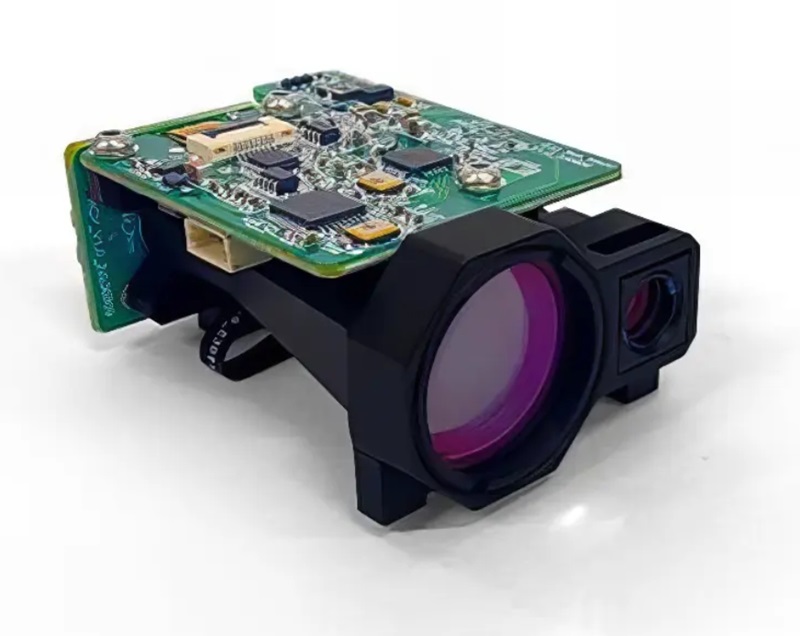High accuracy laser sensor modules are essential tools in various industries, providing precise measurements for applications ranging from industrial automation to robotics and surveying. Evaluating the right laser sensor module for your needs involves understanding key specifications and features that impact performance. This article will guide you through the evaluation process, helping you choose the best laser rangefinder module for your specific requirements.
Understanding Laser Sensor Modules
Laser sensor modules, also known as laser rangefinders, use laser beams to measure distances with high accuracy. These modules emit a laser pulse and measure the time it takes for the pulse to reflect back from the target. The time-of-flight (ToF) data is then used to calculate the distance. High accuracy laser sensor modules are valued for their precision, speed, and reliability in various applications.
Key Specifications to Consider
• Accuracy
Accuracy is a critical specification for laser sensor modules. It determines how close the measured distance is to the actual distance. High accuracy modules typically offer precision within millimeters, making them suitable for applications requiring exact measurements. When evaluating accuracy, consider the module’s stated accuracy range and ensure it meets your application’s requirements.
• Range
The measurement range of a laser sensor module indicates the maximum and minimum distances it can accurately measure. Depending on your application, you may need a module with a long-range capability or one that excels at short-range measurements. Ensure the module’s range aligns with the distances you need to measure.
• Resolution
Resolution refers to the smallest change in distance that the sensor can detect. Higher resolution modules can detect finer changes in distance, which is crucial for applications requiring detailed measurements. Evaluate the resolution specification to ensure it meets the precision needs of your project.
• Response Time
Response time, or measurement speed, is the time it takes for the sensor to provide a distance reading. Fast response times are essential for dynamic applications where quick measurements are necessary, such as in robotics or industrial automation. Consider the response time specification to ensure the module can keep up with the speed of your application.
• Environmental Tolerance
Laser sensor modules are often used in various environmental conditions. Evaluate the module’s tolerance to factors such as temperature, humidity, dust, and vibration. Modules designed for harsh environments will have robust housings and protective features to ensure reliable performance.
• Interface and Compatibility
The interface and compatibility of the laser sensor module with your existing systems are important considerations. Check if the module supports common communication protocols such as UART, I2C, or SPI. Ensure it can be easily integrated into your system without requiring extensive modifications.
Applications of High Accuracy Laser Sensor Modules
• Industrial Automation
In industrial automation, laser sensor modules are used for precise positioning, distance measurement, and object detection. They enhance the accuracy and efficiency of automated processes, ensuring high-quality production.
• Robotics
Robotics applications rely on laser sensor modules for navigation, obstacle detection, and mapping. High accuracy sensors enable robots to perform tasks with precision, improving their functionality and safety.
• Surveying and Mapping
Surveying and mapping professionals use laser rangefinders for accurate distance measurements in topographic surveys, construction, and land development. High accuracy modules ensure precise data collection, which is critical for planning and analysis.
• Agriculture
In agriculture, laser sensor modules are used for precision farming, including tasks such as crop monitoring, field mapping, and equipment guidance. Accurate distance measurements help optimize resource usage and improve crop yields.
Conclusion
Evaluating high accuracy laser sensor modules involves considering key specifications such as accuracy, range, resolution, response time, environmental tolerance, and interface compatibility. By understanding these factors, you can select the best laser rangefinder module for your specific needs, ensuring optimal performance and reliability in your applications.
Whether you are involved in industrial automation, robotics, surveying, or agriculture, high accuracy laser sensor modules provide the precision and efficiency required for successful operations. Stay informed about the latest advancements in laser sensor technology and make informed decisions to enhance your projects and achieve better outcomes.
Lumispot offers a wide range of high-quality laser rangefinder modules designed to meet the demanding requirements of various applications. Visit our website at https://www.lumispot-tech.com/ to learn more about our products and solutions.
Post time: Dec-17-2024

